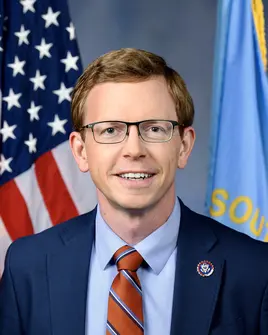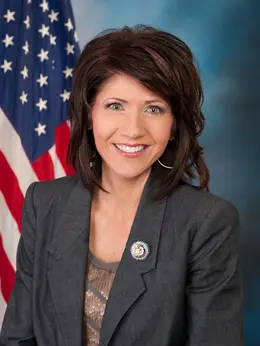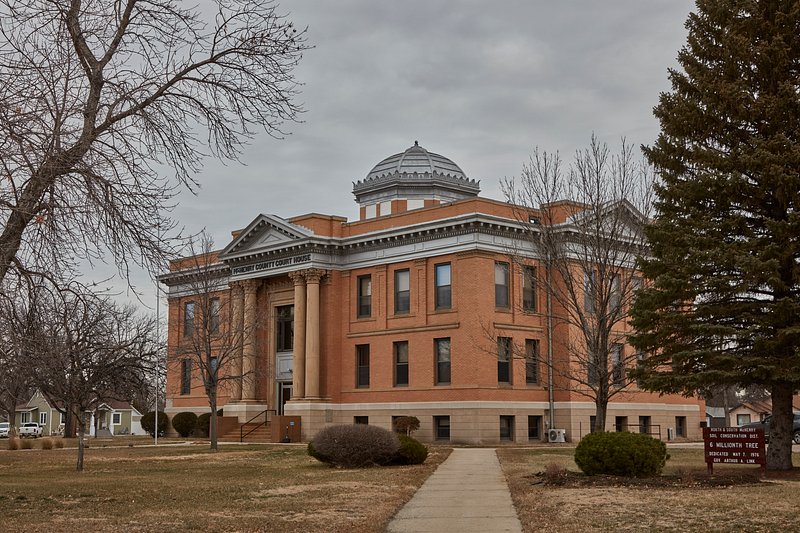Campaign Finance Reforms Stir Debate in South Dakota Legislature
PIERRE — In a move poised to recalibrate the financial landscape of state elections, South Dakota lawmakers are engaging in robust debates over proposed campaign finance reforms. The conversation, ignited by Rep. Spencer Gosch, R-Glenham’s recent amendment, targets the financial conduct of federal officeholders transitioning to state positions.
Gosch’s amendment, introduced to an existing campaign finance bill, suggests imposing a $10,000 annual cap on transfers from federal to state campaign accounts. This legislation is significant for South Dakota, where political figures often traverse the federal-state divide. With [email protected]‘s efforts drawing attention and potential impact on prominent politicians like U.S. Rep. Dusty Johnson and former U.S. Rep. Kristi Noem, the proposal signifies a critical juncture for campaign finance law in the state.

Dusty Johnson
Notably, Dusty Johnson, a key figurehead in South Dakota’s political panorama, holds a $5.2 million balance in his federal campaign committee. Under the new amendment, Johnson’s financial strategy, should he decide to run for governor, would require recalibration. The amendment would similarly have affected Kristi Noem’s 2018 gubernatorial campaign, a race that saw over $1 million transferred from her federal to state accounts.
State Sen. Michael Rohl, R-Aberdeen, provided the initial framework for these reforms through a broader legislative proposal tackling campaign finance loopholes, notably those exploited by Aberdeen businessman Toby Doeden. Doeden’s $100,000 contribution to his Dakota First Action committee revealed vulnerabilities in the system, as contributions reclassified as loans sidestepped the existing $10,000 limit on individual contributions.

Kristi Noem
Rohl’s legislation seeks to counteract such loopholes by mandating that any loans combined with contributions from the same source adhere strictly to the state’s contribution limits. His bill further requires transparent pre-primary fundraising disclosures, irrespective of a candidate’s primary race involvement, thus promoting accountability.
In a bid to maintain fair competition, another Rohl bill aims to align the contribution limits of inactive candidate committees with those currently applied to active committees. These measures suggest a legislative dedication to fairness and transparency, signaling a crucial shift in South Dakota’s political finance dynamics.
These proposed changes reflect South Dakota’s broader commitment to refining the ethical contours of its political scene, marking a departure from past leniencies. The state’s legislators are grappling with how best to ensure a level electoral playing field while avoiding undue financial influence.
As this amended bill advances to the full House of Representatives, it raises pertinent questions about the intersection of money and politics, emphasizing South Dakota’s pivotal role in shaping campaign finance precedent. The resulting discourse not only redefines local electoral practices but also offers a blueprint for broader reform discussions nationwide.
The bill’s implications for figures like Dusty Johnson and Kristi Noem highlight the challenging landscape of campaign finance regulation and its potential influence on political ambitions. As South Dakota navigates these complex waters, the unfolding legislation underscores a commitment to fairness, transparency, and electoral integrity.
With the full House’s decision pending, and potential Senate collaboration on the horizon, South Dakota stands at the forefront of campaign finance reform, offering a transformative vision for the state and beyond.
For more detailed discussions and to follow legislative updates, South Dakota residents can reach out to their local representatives or visit the state legislature website.
